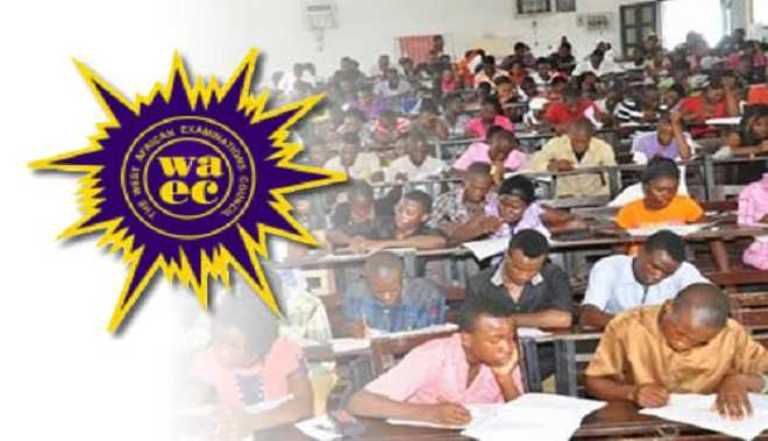The West African Examinations Council has announced a significant drop in performance for the 2025 West African Senior School Certificate Examination, revealing that only 38.32 per cent of candidates obtained at least five credits, including English Language and Mathematics. This represents a sharp decline from the 72.12 per cent recorded in 2024.
According to WAEC, a total of 1,969,313 candidates from 23,554 schools sat the examination. Of this number, only 754,545 candidates secured the benchmark five credits.
The decline in performance was attributed to a new policy introduced by the Council, which involved serialising objective test papers in key subjects such as English, Mathematics, Biology, and Economics.
Speaking at a press briefing held at WAEC’s national headquarters in Yaba, Lagos, on Monday, August 4, 2025, the Head of the Nigeria National Office, Dr Amos Dangut, explained that the move was intended to curb examination malpractice and discourage collusion among candidates.
Dr Dangut noted that while essay performances remained consistent with previous years, the shift in the objective paper format led to a noticeable dip in scores, underscoring the need for candidates to rely on genuine preparation.
The examination took place between April 24 and June 20, with coordination and marking completed between July 3 and 21. WAEC also deployed a real-time digital scoring system to improve the accuracy and speed of result processing.
Out of the total candidates, 1,517,517, representing 77.06 per cent, had their results fully processed and released. However, the results of 451,796 candidates, about 22.94 per cent, are still being processed due to technical issues. The Council has assured the public that these issues are being addressed and that the affected results will be released shortly.
On the matter of malpractice, WAEC disclosed that 192,089 results, accounting for 9.75 per cent of the total, are currently being withheld for offenses such as the use of banned mobile devices and acts of collusion.
Though concerning, this figure reflects a slight improvement from the 11.92 per cent withheld in the previous year. Dr Dangut expressed the Council’s frustration with individuals who attempt to undermine the credibility of the exams, stating that some offenders have already been apprehended and will face sanctions.
He also reminded state governments that any outstanding debts owed to WAEC must be cleared before sponsored candidates can access their results.
The 2025 WASSCE saw 12,178 candidates with special needs register for the exam. Among them were visually impaired, hearing impaired, physically challenged, and mentally challenged students. WAEC confirmed that these candidates were adequately supported throughout the process.
In terms of gender distribution, the candidate pool was nearly even, with 976,787 males and 992,526 females. Interestingly, among the 754,545 candidates who passed with five credits including English and Mathematics, female candidates accounted for a higher percentage, 53.99 per cent, compared to 46.01 per cent for males.
This year also marked a major shift for WAEC, as the Council introduced a computer-based testing (CBT) option alongside the traditional paper-and-pencil format. The innovation is part of WAEC’s broader strategy to fully digitise its examinations by 2026. Dr Dangut described the move as a groundbreaking achievement, positioning WAEC among the first examining bodies in the region to offer CBT for a school-leaving certificate exam.
The results were officially released on Monday and candidates have been advised to visit http://waecdirect.org to check their results.














